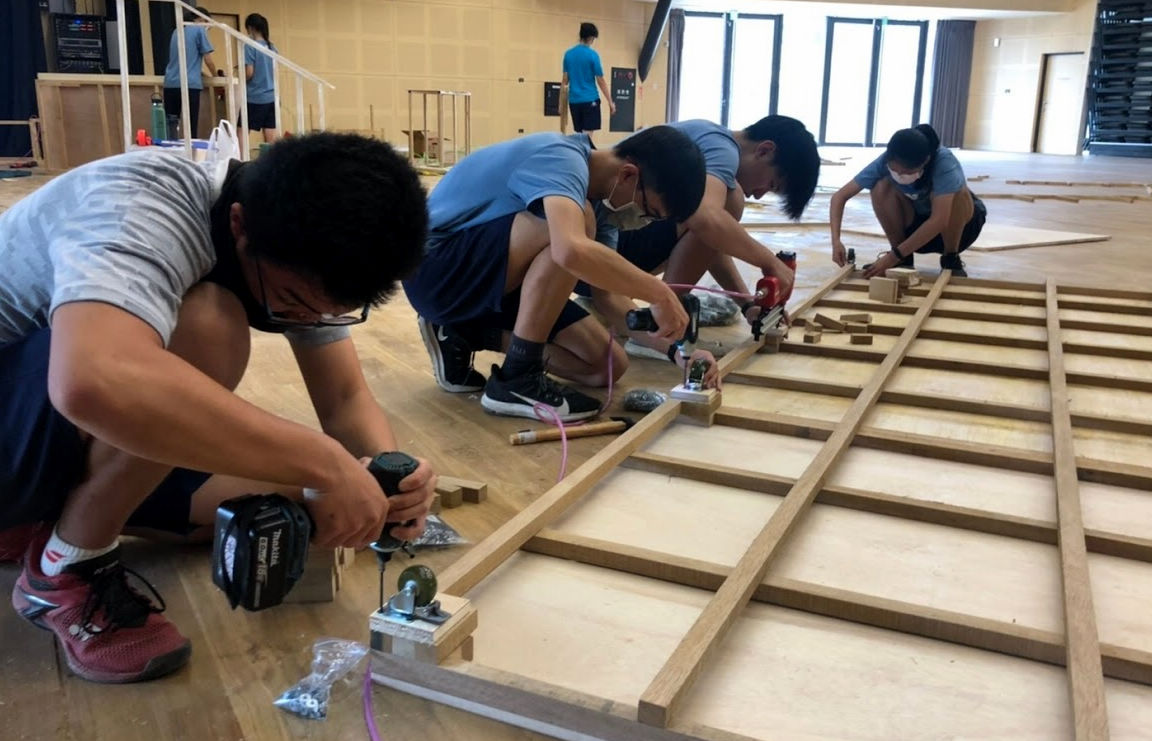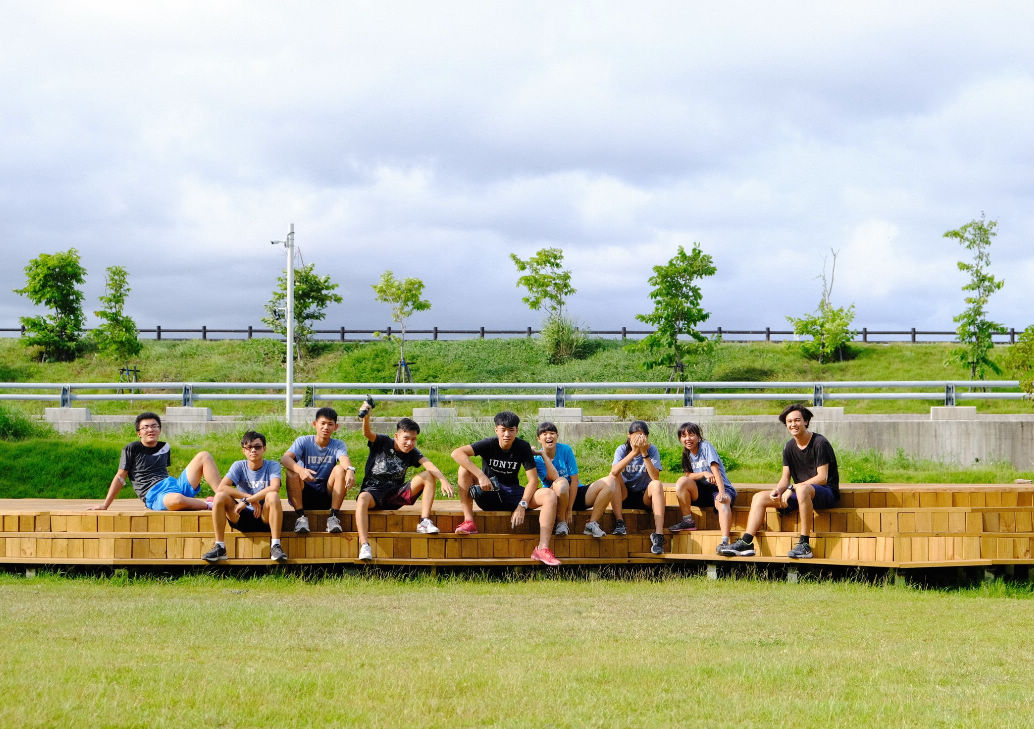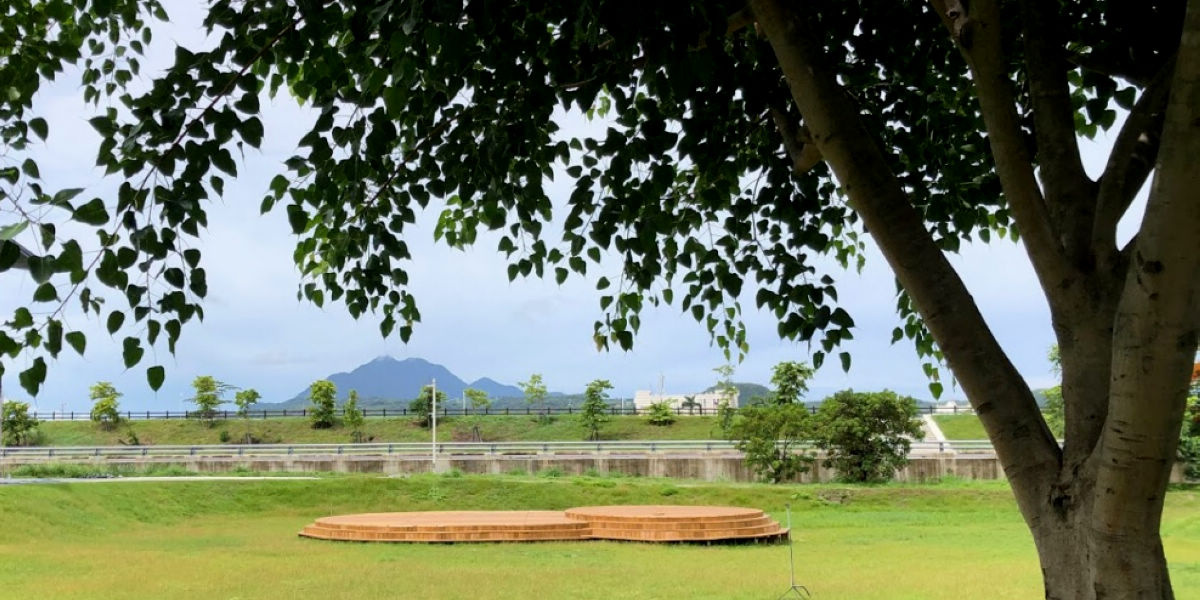Green Architecture Program at the Junyi School of Innovation
The focus of the Junyi School of Innovation senior high Green Architecture program is the study of the surrounding Hualien-Taitung environment, aesthetics in architecture, and developing an appreciation for nature and coexisting with it. The program shares the same vision as the Sustainable Architecture and Design program at St. Joseph Technical Senior High School, one of The Alliance Cultural Foundation's (ACF) earlier projects developed in 2013, which was created under ACF and Junyi Chair Stanley Yen's vision to progress Hualien-Taitung's architectural aesthetics by integrating elements of the local Hualien-Taitung culture through education.
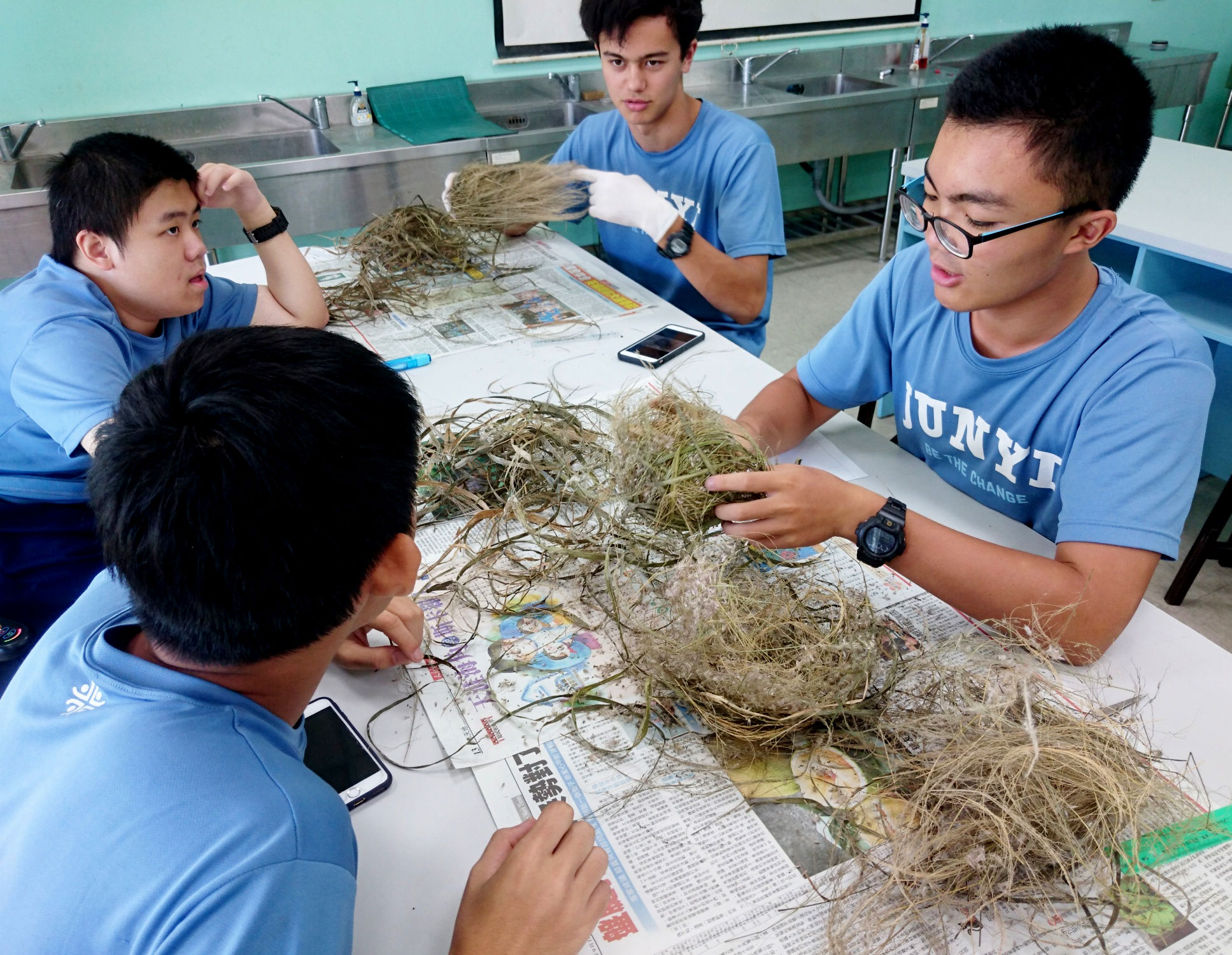
The Junyi campus was designed using a green architecture approach. It believes in the importance of immersing students in an environment concurrent with its teachings. Topics covered in the program include three-dimensional composition, graphic design, environmental architecture, and community construction, to name a few. Students are encouraged to make mistakes, find their own solutions through trial and error, and seek peers' perspectives.
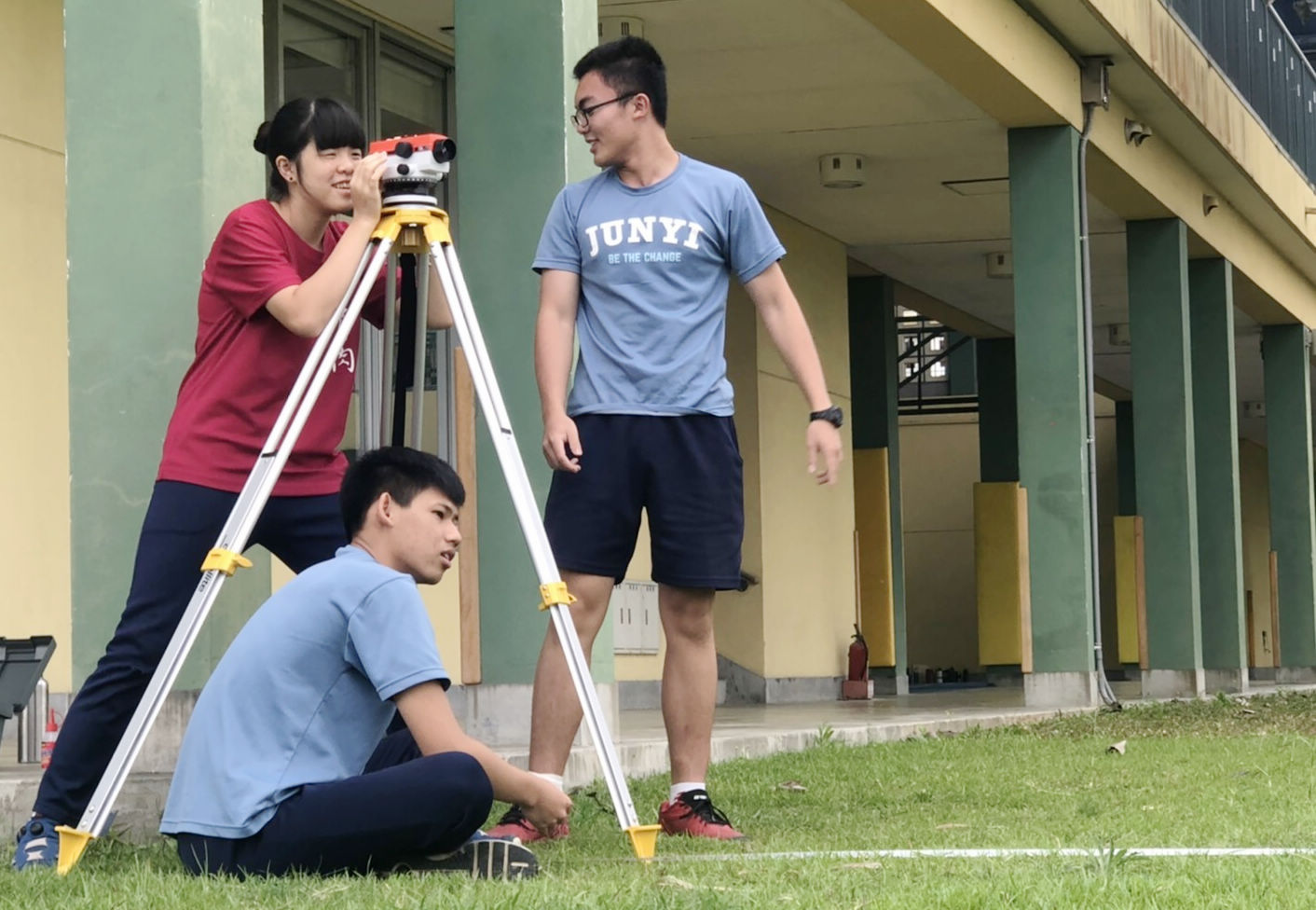
Stage Design: Little Shop of Horrors
Junyi's 2020 production of The Little Shop of Horrors involved the participation of its senior high innovative studies programs – Green Architecture, Contemporary Art, and International Hospitality and Tourism. Students of the Green Architecture program were tasked to design the production stage. It was the first-ever collaboration between students of different innovative studies programs. With guidance from the drama teacher and taking inspiration from different musical productions, the Green Architecture program students presented their ideas to teachers through a 3D model.
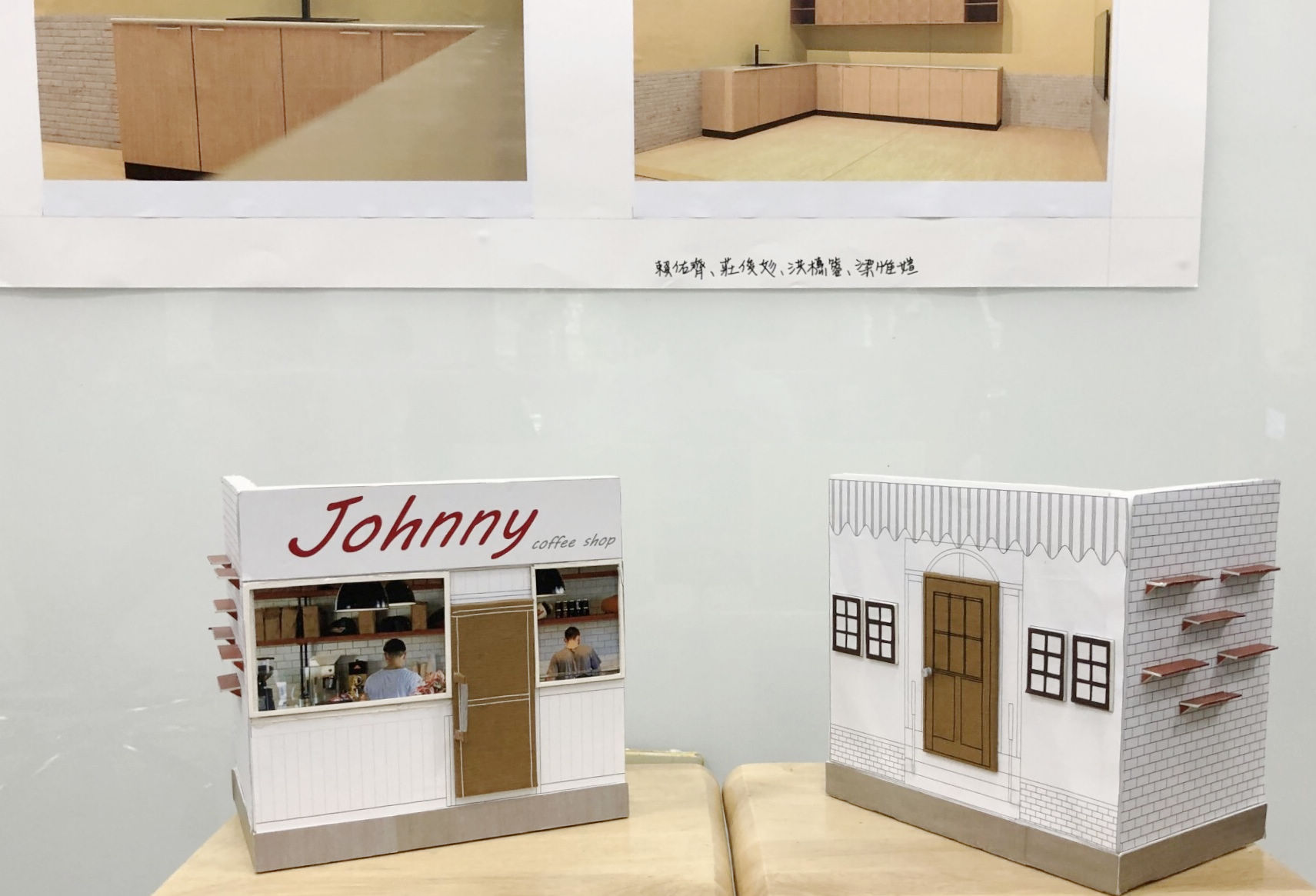
Through constructive feedback from students of the Contemporary Art program, they learned the importance of respecting and adjusting their work to fit the appropriate needs of the production and its performers. They learned to put themselves in the shoes of others for the success of the production. In the planning process, Green Architecture teacher Chen Pei-Chun gave students the space to make mistakes, experience frustration, and overcome their challenges for true learning.
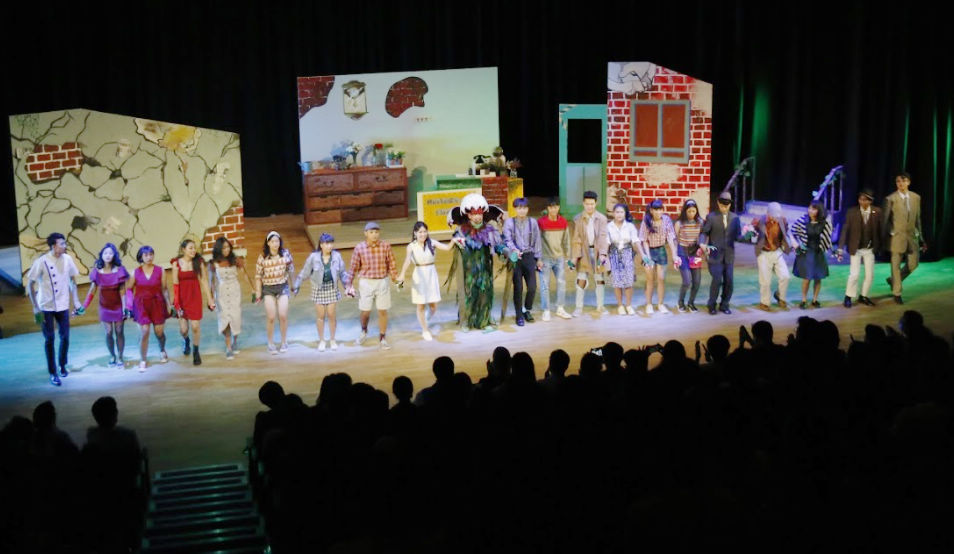
Stage Design: Art Festival
With the success of the Little Shop of Horrors stage design, students of the Green Architecture program were assigned to build the stage for Junyi's annual Art Festival, which, due to COVID-19, took place outdoors for the first time. Inspired by Chair Yen's vision of designs that blend into the natural environment, students created a unique wooden stage that reflected interlocking discs, representing nature's vitality.
Due to the heavy rainfall during the festival week, the stage was deemed unsafe; although disappointed, the process was the core takeaway from the project.
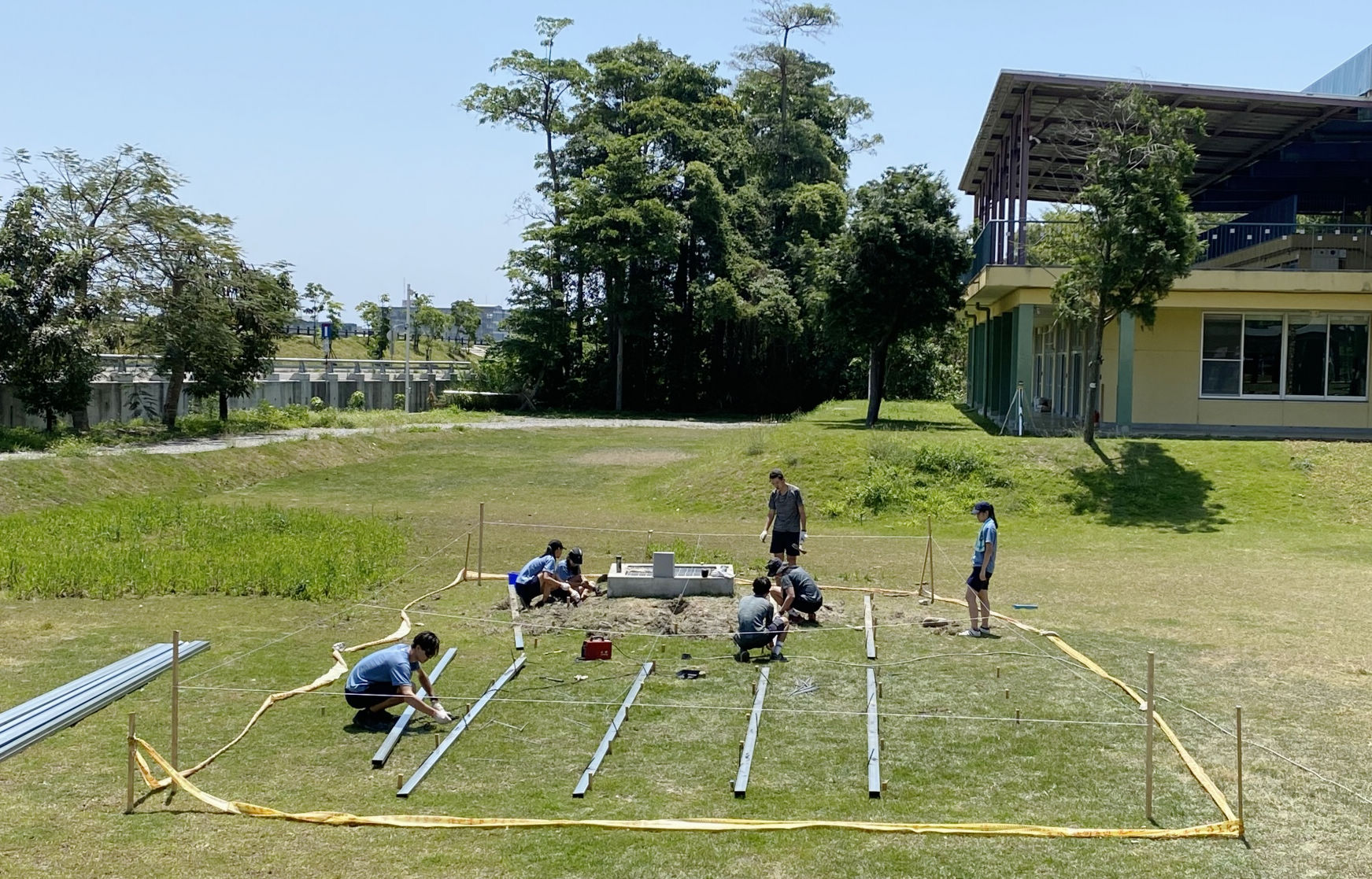
Canopy Design: School Campus
Students of the Green Architecture program are encouraged to identify areas for campus improvement. The 11th-grade class recognized the need for canopies above Junyi's outdoor hand washing stations. When designing the canopies, students not only considered their aesthetics but also the aeration and lighting. From planning and designing to proposing the project, it was a fruitful learning experience for all students.
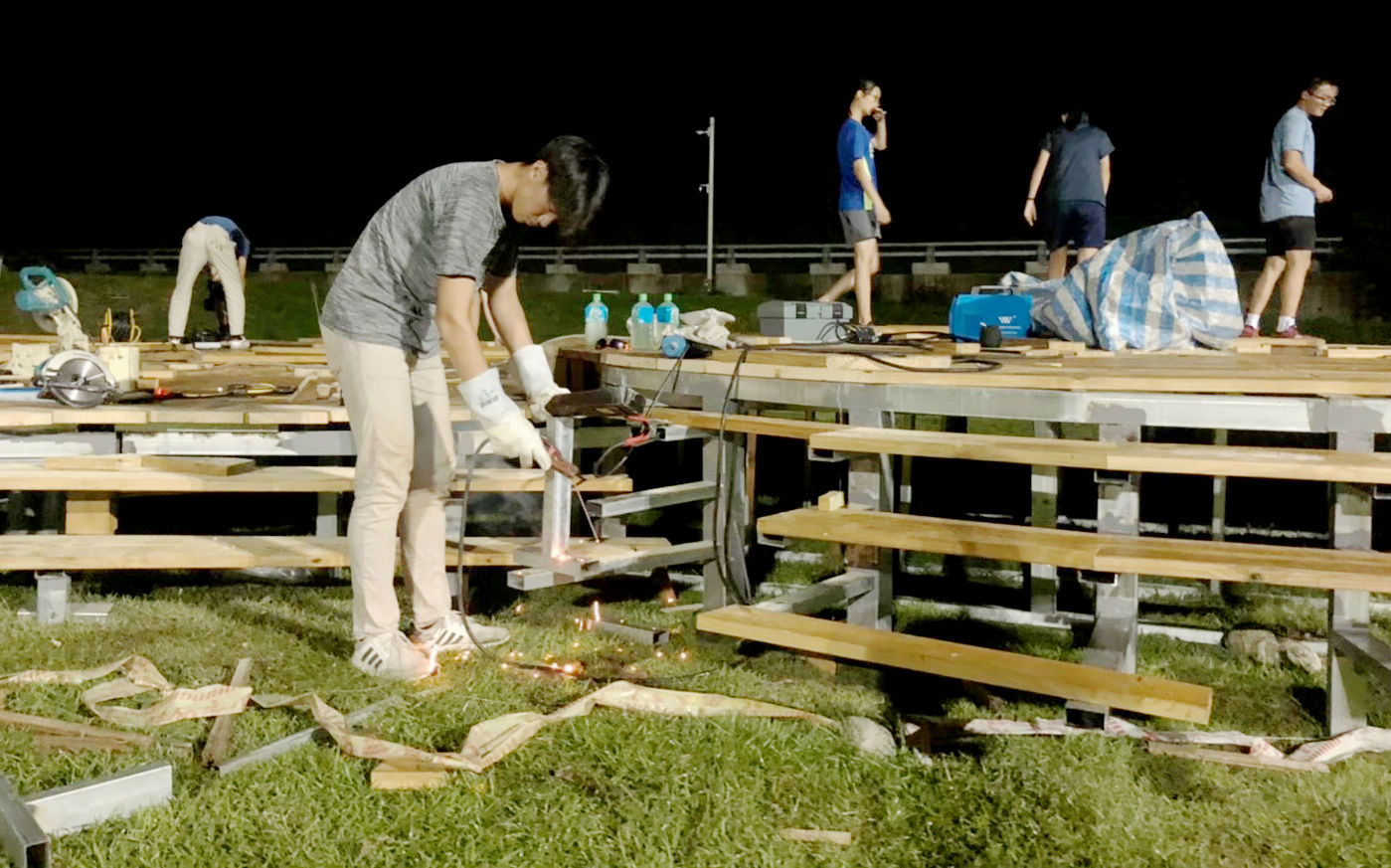
The objective of the Green Architecture program is not only to deliver the theories of green and sustainability in architecture but also to have students experience their learnings practically, work as a team, and nurture their logical thinking. Having hands-on learning is a principal aspect of Junyi’s innovative studies programs.
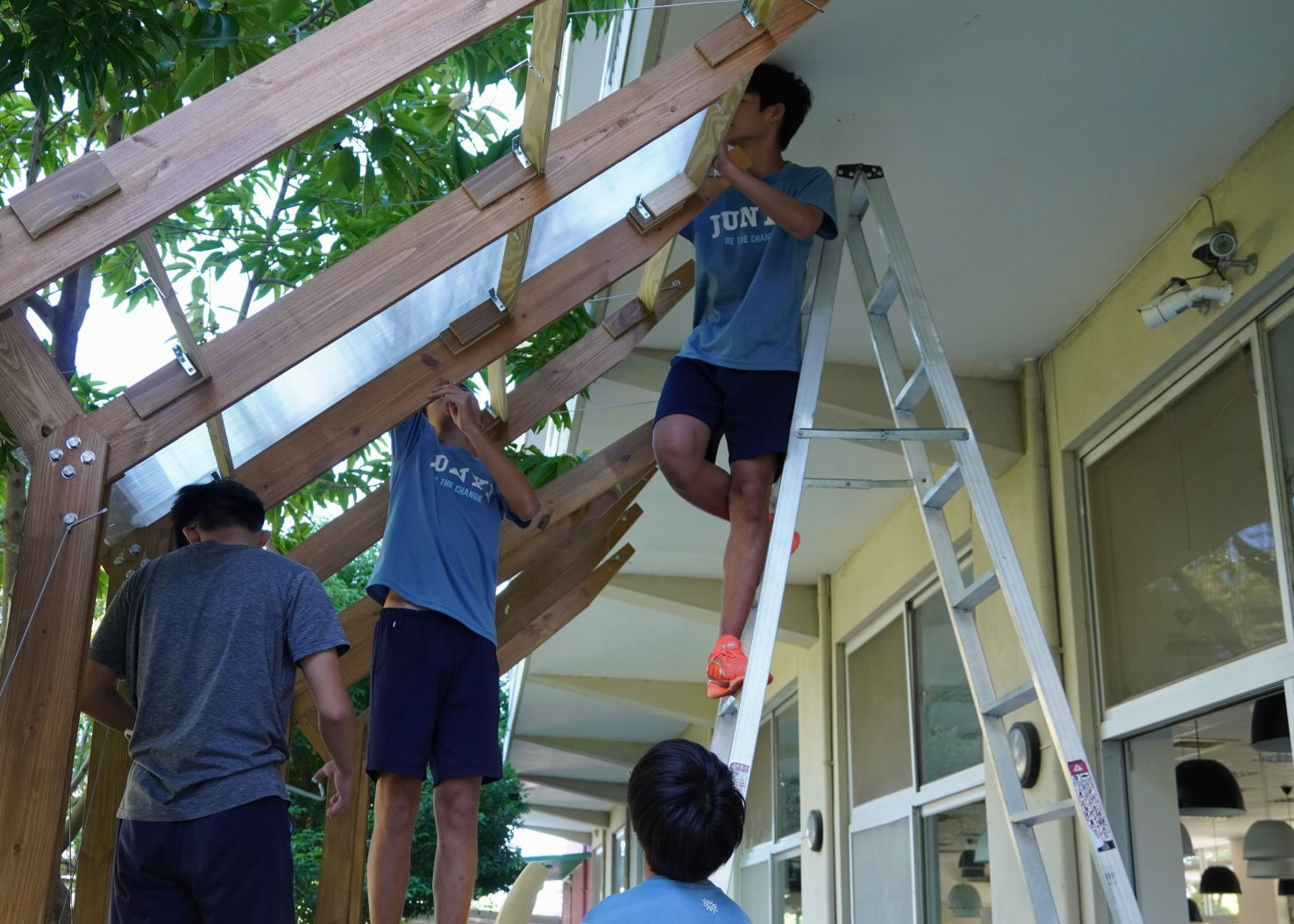
The Sustainable Architecture and Design program at St. Joseph Technical Senior High School was developed in 2013 by ACF volunteer Norman Yang, a retired Director of M. Moser Associates Ltd. (Taiwan Branch) and lead architect of Taipei 101 with over 40 years of experience in the field.
